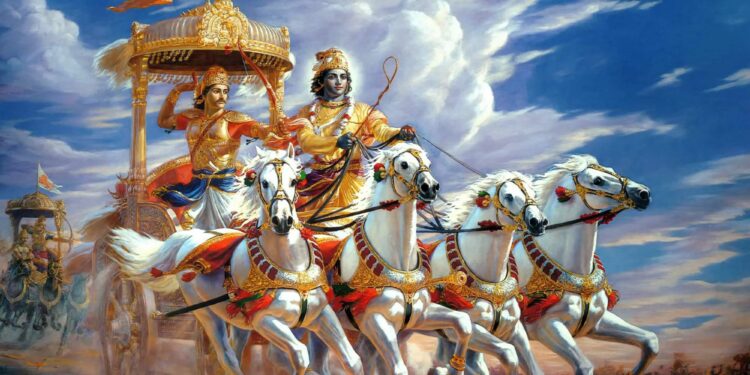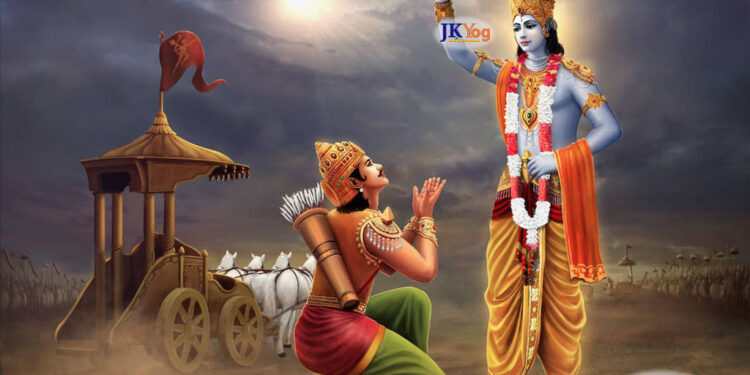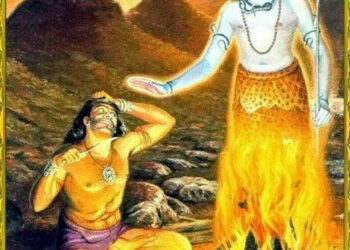Vedic Knowledge
Vedic knowledge is not a question of research. Our research work is imperfect because we are researching things with imperfect senses. We have to accept perfect knowledge which comes down, as is stated in Bhagavad-gītā, by the paramparā (disciplic succession). We have to receive knowledge from the proper source in disciplic succession beginning with the supreme spiritual master, the Lord Himself, and handed down to a succession of spiritual masters. Arjuna, the student who took lessons from Lord Śrī Kṛṣṇa, accepts everything that He says without contradicting Him. One is not allowed to accept one portion of Bhagavad-gītā and not another. No. We must accept Bhagavad-gītā without interpretation, without deletion and without our own whimsical participation in the matter. The Gītā should be taken as the most perfect presentation of Vedic knowledge. Vedic knowledge is received from transcendental sources, and the first words were spoken by the Lord Himself. The words spoken by the Lord are called apauruṣeya, meaning that they are different from words spoken by a person of the mundane world who is infected with four defects. A mundaner (1) is sure to commit mistakes, (2) is invariably illusioned, (3) has the tendency to cheat others and (4) is limited by imperfect senses. With these four imperfections, one cannot deliver perfect information of all-pervading knowledge.
Vedic knowledge is not imparted by such defective living entities. It was imparted unto the heart of Brahmā, the first created living being, and Brahmā in his turn disseminated this knowledge to his sons and disciples, as he originally received it from the Lord. The Lord is pūrṇam, all-perfect, and there is no possibility of His becoming subjected to the laws of material nature. One should therefore be intelligent enough to know that the Lord is the only proprietor of everything in the universe and that He is the original creator, the creator of Brahmā. In the Eleventh Chapter the Lord is addressed as prapitāmaha [Bg. 11.39] because Brahmā is addressed as pitāmaha, the grandfather, and He is the creator of the grandfather. So no one should claim to be the proprietor of anything; one should accept only things which are set aside for him by the Lord as his quota for his maintenance.
There are many examples given of how we are to utilize those things which are set aside for us by the Lord. This is also explained in Bhagavad-gītā. In the beginning, Arjuna decided that he should not fight in the Battle of Kurukṣetra. This was his own decision. Arjuna told the Lord that it was not possible for him to enjoy the kingdom after killing his own kinsmen. This decision was based on the body because he was thinking that the body was himself and that his bodily relations or expansions were his brothers, nephews, brothers-in-law, grandfathers and so on. Therefore he wanted to satisfy his bodily demands. Bhagavad-gītā was spoken by the Lord just to change this view, and at the end Arjuna decides to fight under the directions of the Lord when he says, kariṣye vacanaṁ tava [Bg. 18.73]: “I shall act according to Your word.”
In this world men are not meant for quarreling like cats and dogs. Men must be intelligent to realize the importance of human life and refuse to act like ordinary animals. A human being should realize the aim of his life, and this direction is given in all Vedic literatures, and the essence is given in Bhagavad-gītā. Vedic literature is meant for human beings, not for animals. Animals can kill other living animals, and there is no question of sin on their part, but if a man kills an animal for the satisfaction of his uncontrolled taste, he must be responsible for breaking the laws of nature. In the Bhagavad-gītā it is clearly explained that there are three kinds of activities according to the different modes of nature: the activities of goodness, of passion and of ignorance. Similarly, there are three kinds of eatables also: eatables in goodness, passion and ignorance. All of this is clearly described, and if we properly utilize the instructions of Bhagavad-gītā, then our whole life will become purified, and ultimately we will be able to reach the destination which is beyond this material sky. [Bg. 15.6]



















